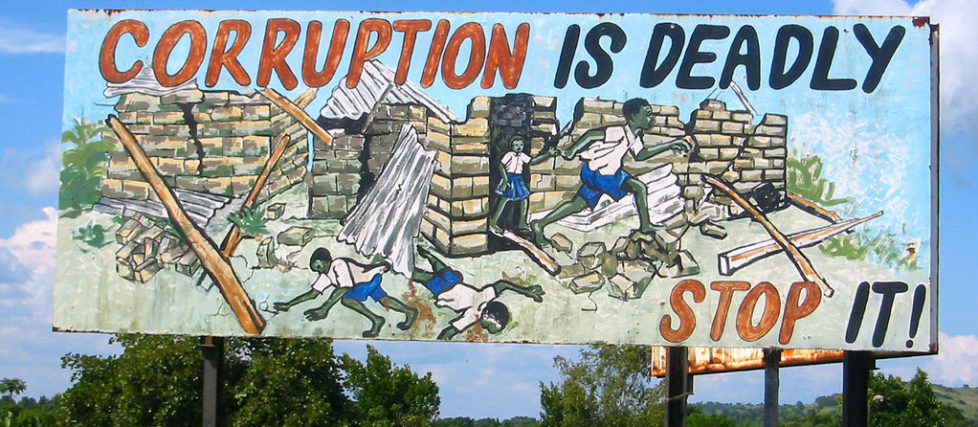Such were the messages that emerged from a recently concluded workshop on Managing Security Resources in Africa hosted the Africa Center for Strategic Studies in Kampala. Dr. Assis Malaquias, Faculty Lead for the workshop and Professor of Defense Economics and Resource Management at the Africa Center for strategic Studies, discusses the pressing challenge of corruption for African security in this interview.
Question: Why is corruption so endemic in the African security sector?
Malaquias: First of all, corruption occurs in other places as well, including in developed countries, and so it is not confined to the continent. Second, corruption in high value transactions such as military procurement involves outside actors because African countries, with the exception of a few like South Africa, do not produce military hardware. Having said that, corruption is a major impediment to the development of African security sectors. Corruption in the military, intelligence, and police services is part and parcel of the highly entrenched patronage networks that exist in the political and economic system as a whole. It is also deeply embedded in the survival calculus of a regime that tends to be personality-driven and does not place much emphasis on building independent institutions.
These problems are multiplied in the security sector because of the huge transactions involved, the secrecy requirements, and the sensitivities associated with national security—all of which reinforce the lack of transparency and accountability. There is, as a result, a significant amount of dysfunction in the military:
- Procurements are often conducted through personal, not professional channels.
- Procurements are not always matched to national security requirements.
- There is a vast amount of waste in the allocation and management of security resources, many of which are funneled for personal use or to the patronage system.
With resources misused in this manner security threats cannot be met because the resources applied to them are insufficient. These problems are compounded by poor planning. More often than not the ends (objectives), ways (courses of action), and means (resources) are mismatched, leading to a situation where equipment is obtained that is not well-suited to the types of threats the military is expected to face. The end results are military losses, more insecurity, and less development.
Question: How does all of this impact readiness and military effectiveness?
Malaquias: Militaries are becoming more aware of the impact that corruption and general mismanagement have on combat outcomes. President Mohammadu Buhari of Nigeria, for instance, has wasted little time in tackling this issue head on. The large human and material losses that the Nigerian military has suffered in the fight against Boko Haram were a wake-up call. The problem was not lack of resources. Nigeria spends $6 billion of its own money annually on defense, one of the largest defense budgets in Africa. Of this, however, only about one-tenth went to equipment. Much of the rest went to staff elements and a substantial amount to personal use. The $600 million allowed for equipment was misapplied. Nigeria purchased weapons better suited for conventional warfare as opposed to counter insurgency. This speaks to what I pointed out earlier about poor planning. Resources are not only misused but also mismatched to the threat environment. As a result, the military posture itself becomes faulty.
These problems are by no means unique to Nigeria. In South Sudan the failure by the military to put down insurgencies waged by different groups, most of them lesser-armed, was a function of mismanagement and misapplication of resources. Its near-collapse in 2014, when three of its 10 divisions defected intact to the side of the rebellion, pointed to years of neglect of the importance of developing cohesion, professional command and control, and good management. The lessons are clear: when military professionalism is ignored and when armies become institutions in which political and personal (even ethnic or religious) loyalties and bribes become the basis for promotions, operational and strategic inefficiencies take root.
Question: What needs to be done?
Malaquias: The problems of corruption and mismanagement in the security sector need to be looked at from an operational and strategic standpoint and not simply as issues that are discussed in seminars. Similarly, African states and their foreign partners should not discount these problems as mere irritants in the interests of maintaining good relations. Both sides need to understand that there are very serious and long term operational costs of not tackling corruption head on. Priorities include:
- Combating malfeasance in procurement and planning.
- Developing appropriate skills and capabilities for planning and resource allocation.
- Strengthening political will at the decision-making level. Security sectors have deeply entrenched political interests. There is a need for senior African leaders to understand that the security of their states and, by extension, their governance can be better guaranteed with more professional security services and sound practices of management.
- Optimally using existing resources. More often than not money is not the problem. The real challenge is waste, mismanagement, misallocation and abuse. All these problems are serious, but they are not insurmountable.
Additional Resources
- Emile Ouédraogo, “Advancing Military Professionalism in Africa,” ACSS Research Paper No.6, Africa Center for Strategic Studies, July 2014.
- Helmoed Heitman, “Optimizing Africa’s Security Force Structures,” Africa Security Brief No. 13, Africa Center for Strategic Studies, May 2011.
- Dominique Djindjéré, “Democracy and the Chain of Command: A New Governance of Africa’s Security Sector,” Africa Security Brief No. 8, Africa Center for Strategic Studies, November 2010.
- “After the Election: Fundamental Security Issues Nigeria Must Face. Part 6: Military Professionalism,” Africa Center for Strategic Studies, May 2015
- Richard Rands, “In Need of Review: Sudan People’s Liberation Army (SPLA) Transformation in 2006–2010 and Beyond,” Sudan Human Security Baseline Assessment, November 2010.
More on: Corruption Military Professionalism


